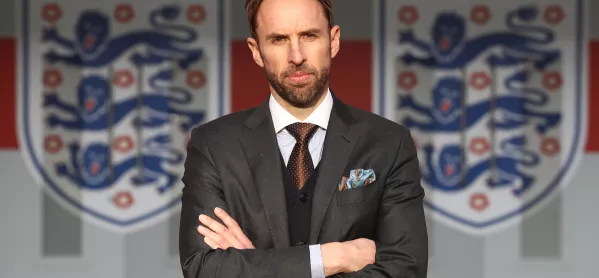Euro 2020: ‘It feels like an Ofsted inspection day’

Well, here we are. The school day after the night before. And, from an England-supporting perspective, isn’t it depressing?
I feel sorry for any members of the school community who woke up this morning genuinely ill, because there’s no way SLT are going to believe a word of their self-diagnosis.
But maybe they lucked out. From what I can tell, most schools - and, indeed, most places in England right now - are fogged by the gloom that normally only manifests itself on the morning of an Ofsted inspection.
The students - bleary-eyed, zombified - are putting on a brave face. For them, it’s their first time. Their Hand of God moment, their Ronaldo wink, their disallowed Lampard half-volley. And, yes, their Southgate missed penalty.
Euro 2020: England losing in the final is a lesson in handling disappointment
But the truth is that losing is part of life, and our students are now fully paid-up members of the club. This one cuts deeper because it was a final, and was lost on dreaded penalties, but there will always be more losers than winners.
Fifty-five teams were in the qualifying tournament and 24 made it to the competition stage. Only one team came out victorious, so losing doesn’t make England unique. I’m telling my students that there are 54 countries that also didn’t win. Being the second-best team in Europe is a massive improvement on the Eurovision Song Contest result.
“I knew we’d lose,” one Year 7 tells me with a shrug, as surefire a coping mechanism as I’ve ever heard.
Others - older children who’d brought St George’s flags into the playground during the group stages of the tournament and were loudly chanting “It’s coming home” in the corridors - are now mute, as though nothing ever happened.
“Penalties don’t count,” is a common refrain. And they’ve got a point.
A few others, as expected, are absent, the after-effect of a match scheduled for eight o’clock on a Sunday and a television broadcast stretching almost to midnight. The adrenaline kept the nation up way past Sako’s penalty kick, and the collective hangover has fallen over us all like doused floodlights.
They’ve been through a lot, our children, and a win would have been a ray of light in a relentlessly wet summer. My school has been shut for almost two weeks, thanks to the Delta variant ripping through its classrooms, and after that return to isolation, we were all up for a party. It wasn’t to be.
Learning to lose with grace and dignity is a skill we all need, just as important as winning with humility.
The cliché goes: it’s not the winning that counts, but the taking part. Well, England-championing children of Euro 2020, your team sure took part. The route to the final was a blast. Ukraine were trounced, and the history books will forever record an England win against Germany.
How we, as adults, demonstrate healthy reactions to the final defeat is key. Accepting that the better team won, and kept us off the ball for long periods, is a good start. Acknowledge disappointment and congratulate the winners (this is particularly hard for me: my wife is Italian and our children dual nationals - that match was awkward).
Fortunately, Gareth Southgate is grace personified, and his post-match interview showed true class. Such role models are crucial in these times, when a minority of fans boo the opposition’s national anthems, delight in the tears of the vanquished and shine laser-pointers in goalkeepers’ eyes.
There will always be disappointments in life, and this preparation for our students’ future may well hurt, but so will some exam results, failed job interviews or seeing election campaigns built upon lies succeed against common sense.
What we feel we “deserve” isn’t always rewarded. Sport, and that tricky thing called real life, is more mercurial than that.
Winning, alas, will never be a 24/7 occupation and how we, as individuals, cope with failure is a step towards - ultimately - winning in the future.
After all, kids, the World Cup is next year.
Paul Read is a teacher and writer
You need a Tes subscription to read this article
Subscribe now to read this article and get other subscriber-only content:
- Unlimited access to all Tes magazine content
- Exclusive subscriber-only stories
- Award-winning email newsletters
Already a subscriber? Log in
You need a subscription to read this article
Subscribe now to read this article and get other subscriber-only content, including:
- Unlimited access to all Tes magazine content
- Exclusive subscriber-only stories
- Award-winning email newsletters